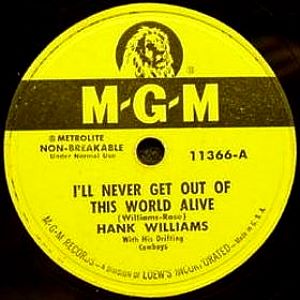My job is equally split between absolute certainties and utter uncertainties.
The Certainties
“In this world nothing can be said to be certain, except death and taxes.” – Benjamin Franklin
The Uncertainties
Strangely the uncertainties also include death and taxes.
Nobody will ever get out of this world alive, we are certain to face death at some point. But exactly when we will die is anybody’s guess. UK life expectancy is increasing. One of my first ever blogs talked about this, which included a reference to that icon of English motor manufacturing, The Austin Allegro.
Nobody escapes taxation. Not even Lester Piggott, Take That or Jimmy Carr. UK taxation continually changes over time, depending on both political ideologies and just how skint we are as a nation. Tax increases in one area and tax reductions in another.
My job as a Financial Planner can best be described as helping our clients to plan for the two great certainties in life, against a backdrop of ever changing uncertainties.
This brings me neatly to pension taxation and inheritance taxation; I do understand that at this point many of you are now contemplating early death rather than reading on. But please bear with me as this is important.
The taxation of pension benefits on death
We currently manage some £30 million of our savings held within pensions. The rest of what we manage is in Individual Savings Accounts etc. So you can see that the bulk of our collective savings are held in pension accounts.
Pension funds left over after our death are now free of Inheritance Tax
If we don’t purchase an annuity with our pension savings, we now get the chance to leave a legacy to our kids tax-free. It means that maybe we should spend those other savings we have that could be taxed at 40% on death. It means many individuals will consider saving into pensions again.
Any beneficiary can receive the residual balance left in our pension pots after our death, either in a one-off payment, or as an ongoing income, starting from any age
Income tax is paid by the person receiving the lump sum or ongoing income, based solely on the age of the person who died. Die before age 75, there will be no income tax due for ever more. Die after age 75 and the person receiving the lump sum or income adds it to their other income and is then taxed accordingly.
Keeping abreast of the changes
We will all be certain that death will come and that taxation will continue to change. You can be certain that I will keep abreast of all the legislative changes and help you to plan accordingly. I have just become one of the first to pass the Chartered Insurance Institute’s latest exam, “Pensions Update”. It demonstrates that I still have the capacity at age 53, to learn and hold really boring, mind numbing facts.
Many of us won’t yet be certain of whether our loved ones will currently face income tax on our left over pension funds, because we have not reached age 75 yet.
Those clients above age 75 possibly don’t need to worry about inheritance tax anymore. Those clients below the age 75 possibly don’t need as much life assurance now. We have this government for 5 years now so at least some short-term tax planning is possible. Everybody’s situation is different. We will explore all your new options at our next review. If you feel a review now would help, contact Melissa and she will put some time in my diary for you.
Dedications
This blog is dedicated to
Thomas Greenwood 18th July 1940 – 9th September 2015.
A client and friend of 13 years. Died suddenly age 75 years, 1 month & 28 days.
Graham Warren 13th July 1954 – 12th June 2015
A client and friend of 28 years. Died suddenly age 60 years, 11 months.

